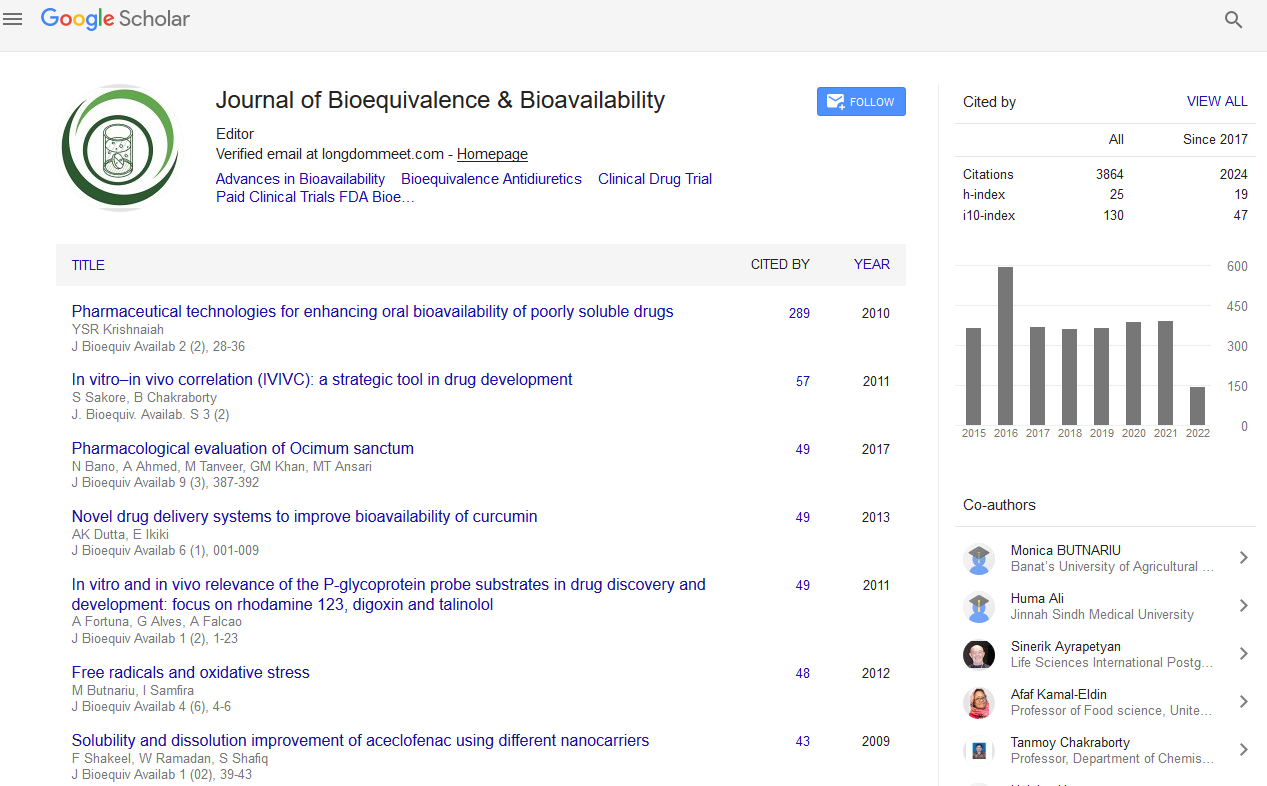PMC/PubMed Indexed Articles
Indexed In
- Academic Journals Database
- Open J Gate
- Genamics JournalSeek
- Academic Keys
- JournalTOCs
- China National Knowledge Infrastructure (CNKI)
- CiteFactor
- Scimago
- Ulrich's Periodicals Directory
- Electronic Journals Library
- RefSeek
- Hamdard University
- EBSCO A-Z
- OCLC- WorldCat
- SWB online catalog
- Virtual Library of Biology (vifabio)
- Publons
- MIAR
- University Grants Commission
- Geneva Foundation for Medical Education and Research
- Euro Pub
- Google Scholar
Useful Links
Share This Page
Journal Flyer

Open Access Journals
- Agri and Aquaculture
- Biochemistry
- Bioinformatics & Systems Biology
- Business & Management
- Chemistry
- Clinical Sciences
- Engineering
- Food & Nutrition
- General Science
- Genetics & Molecular Biology
- Immunology & Microbiology
- Medical Sciences
- Neuroscience & Psychology
- Nursing & Health Care
- Pharmaceutical Sciences
Cell therapy manufacturing tools and global regulatory environment
International Conference and Exhibiton on Pharmaceutical Regulatory Affairs
6-7 September 2011 Baltimore, USA
Jiwen Zhang
Scientific Tracks Abstracts: JBB
Abstract:
C ell therapies are anticipated to be the next breakthrough to address unmet medical needs. Th ough use of cells as therapeutic agents such as bone marrow transplant has been in medical practice for decades, cell therapy regulati ons are relatively new, or emerging in most countries and regions, including the US and the EU. In this evolving regulatory environment, how cell therapy tools are regulated is not straight forward. Wave, a bioreactor intended for expansion of human cells in suspension, has been on the market in the US and Canada. Since cell therapy is regulated similarly as drugs or biologics in the US and Canada, Wave Bioreactor is regulated as manufacturing equipment but not a medical device, the same as for biologic ma nufacturing equipment. A Drug Master File for Wave has been fi led at the FDA and cross-referenced by INDs cleared to initiate clinical trials for testing investigational cell therapy products. While cell therapy development is advancing around the world, particularly in Asian Pacifi c countries, the demand of an automated, scalable bioreactor such as Wave for manufacturing cell therapy product has increased. However, due to unclear or evolving regulations in these countries, confusions arise on whether Wave bioreactor should be regulated as equipment or a medical device. As the author works with individual countries to map out regulatory pathway for Wave, it has become clear that a harmonized regulatory requirement for cell therapy products and cell therapy processing tools are critical to bring innovative cell therapies to patients in needs.
Biography :
Jiwen Zhang received her Ph.D from the joint Physiology and Neurobiology program at Rutgers University and University of Medicine and Dentistry of New Jersey. Currently, she is a Regulatory Affairs Director for Strategic Initiative at GE Healthcare. Before joining GEHC, she had worked in pharmaceutical and biotech industry as a regulatory affairs professional developing biologics, small molecule drugs, and cell therapies in different therapeutic areas. Jiwen has taught RA courses at universities and given presentations at industry symposiums on drug development and regulatory strategies.


